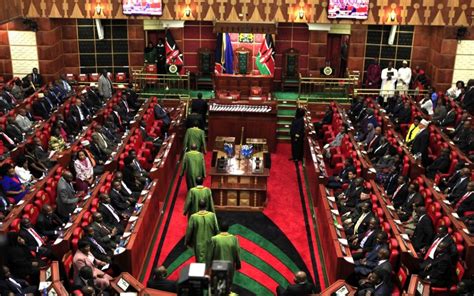Kenya is abuzz with the recent passing of the 2022 Startup Bill by the Senate—a move that promises to revolutionize the country’s startup landscape. If given the nod by President William Ruto, this bill will not only compel Kenyan startups to allocate a significant portion of their budget towards research and development (R&D) but also require them to maintain complete ownership by Kenyan nationals to be eligible for legal recognition and government backing.
“The bill introduces a range of incentives such as tax breaks, grants, incubation programmes, and credit guarantee schemes aimed at boosting innovation.”
While these measures are intended to spur innovation and growth within the local startup ecosystem, they have triggered a wave of concerns, particularly surrounding the stipulation for exclusive Kenyan ownership. Critics fear that this stringent requirement could impede progress by excluding startups with foreign co-founders or investors who do not meet the ownership criteria set forth in the bill.
“Many successful Kenyan startups have attracted significant foreign capital and have foreign founders or co-founders whose contributions have positioned Kenya as an African innovation hub.”
Indeed, some of Kenya’s most successful startups owe their success in part to partnerships with international players. By potentially alienating these valuable collaborators, there is apprehension that the country may lose its attractiveness as a destination for global venture capital. The vibrant entrepreneurial spirit that has put Kenya on the map could face challenges if diversity in ownership structures is not embraced.
As stakeholders weigh the pros and cons of this legislative move, it’s crucial to acknowledge that Kenya has emerged as a hotspot for startup investments over recent years. Reports indicate that in 2024 alone, startups in Kenya raked in a whopping $638 million (KES82.3 billion), underscoring investor confidence in the country’s business landscape.
“The 15% R&D expenditure mandate aims to foster deeper innovation within Kenya’s startup scene.”
On one hand, proponents view the 15% R&D spending requirement as a catalyst for driving more profound innovation among local startups—an essential step towards enhancing their competitiveness on a global scale. This provision seeks to incentivize founders to prioritize activities such as patent registration, software development, and crucial research endeavors critical for long-term sustainability.
Should President William Ruto endorse this bill into law, oversight of startup operations will fall under the purview of an appointed Registrar of Startups. While this move holds promise for improving accountability within the sector, questions linger about how fledgling businesses—already grappling with financial constraints—will navigate additional compliance burdens.
“Steve Okoth from BDO East Africa sees potential strains on startups due to mandatory R&D spending requirements.”
According to industry experts like Steve Okoth from BDO East Africa, while mandating an allocation towards R&D can ingrain a culture of innovation among founders—boosting overall competitiveness—it may place undue strain on startups operating on slim profit margins. A one-size-fits-all approach could inadvertently hinder creativity and growth potential across diverse sectors within Kenya’s dynamic startup ecosystem.
By fostering flexibility through incentive-driven mechanisms tailored to suit varying industry needs and developmental stages, policymakers can better nurture sustainable growth pathways while safeguarding innovation at every turn.
In closing,the ongoing dialogue around Kenya’s Startup Bill serves as a testamenttoThis nuanced balance between enforcing regulatory standards without stifling creative prowess lies at the heartthis juncture,determining how bestsafeguard both entrepreneurial freedom<>and national interests.

